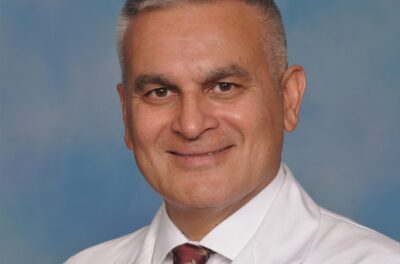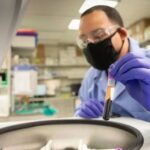 When Hurricane Matthew hit Haiti in October 2016, two Nova Southeastern University College of Osteopathic Medicine (NSU-COM) student groups—the Disaster Medicine Club (DMC) and the Student National Medical Association—rallied to collect goods and financial donations to help rebuild two medical clinics destroyed by the massive and mighty storm. The two groups also teamed up with a local Chipotle Mexican Grill in a dine-and-donate endeavor to raise funds to help the island nation recover.
When Hurricane Matthew hit Haiti in October 2016, two Nova Southeastern University College of Osteopathic Medicine (NSU-COM) student groups—the Disaster Medicine Club (DMC) and the Student National Medical Association—rallied to collect goods and financial donations to help rebuild two medical clinics destroyed by the massive and mighty storm. The two groups also teamed up with a local Chipotle Mexican Grill in a dine-and-donate endeavor to raise funds to help the island nation recover.
Those efforts are part of the successful and burgeoning evolution of NSU-COM’s Master of Science in Disaster and Emergency Management Program, which was established in August 2012.
The death and destruction of 9/11 evoked a heightened concern about the potential threat of biological and other weapons against the United States. Through the leadership of Leonard Levy, D.P.M., M.P.H., former associate dean of research and innovation and professor emeritus, and James Howell, M.D., M.P.H., assistant dean of professional relations, NSU-COM received funding from the Office of the Assistant Secretary of Preparedness and Response—part of the U.S. Department of Health and Human Services—and created the Center for Bioterrorism and All-Hazards Preparedness (CBAP).
The role of CBAP, established in 2002, was to develop training courses that would address hazards that include bioterrorism, other intentional man-made disasters, nonintentional man-made disasters, natural disasters—hurricanes, floods, wild fires, tornadoes, and earthquakes—pandemics, and acts of maritime piracy. In the next few years, more than 256,000 individuals from across the United States and numerous foreign countries took the training.
Cecilia Rokusek, Ed.D., M.S., R.D., former assistant dean for research and innovation, later joined CBAP and along with Levy, envisioned a degree program that included prevention, mitigation, response, and recovery to all types of hazards—natural and man-made.
As the project of developing a full academic program continued, Kelley Davis, Ph.D., program director for the M.S. in Disaster and Emergency Management (M.S. DEM) Program and faculty adviser for the DMC, accepted the task to research other degree programs in the United States that related to disaster preparedness and response. The program was developed for the master’s level and approved by the Southern Association of Colleges and Schools in February 2012.
Two students comprised the first class and were admitted for courses in August 2012. Since that time, the program has grown to 30 students with 11 graduates—with 11 additional students garnering degrees in May 2017. In 2016, the program was renamed Disaster and Emergency Management to reflect the full scope of the curriculum, which addresses preparedness and incorporates all aspects of the disaster cycle—preparedness, mitigation, response, and recovery.
The program’s courses are offered exclusively online, but faculty members must maintain regular, synchronous, online sessions with their classes. The complexity of handling disasters involves the collaboration of many different players—law enforcement, municipal government administration, fire service, public works, public health, engineering, nongovernmental organizations, private companies, and corporations—from local areas, throughout Florida, and from several states, including Arizona, Georgia, Oklahoma, Iowa, Michigan, Mississippi, and New York.
An outstanding strength of the program is the emphasis on linking theory with practical skills. Students learn how to write a continuity of operations plan, perform a risk assessment, and develop an exercise tied to a variety of scenarios. The integrated knowledge offers the opportunity to create a portfolio that can be shared with prospective employers.
Davis believes the trademark of the M.S. DEM program is rooted in responding to the complex demands of the many professions that handle catastrophic events. “For this reason, we developed concentrations that go beyond the course requirements,” she added.
“Most of the degree programs available have a set of courses that every student takes, regardless of background, career goals, or previous knowledge. Our breadth of content covers areas such as public health, fire administration, environmental hazards, cybersecurity, and law enforcement, making NSU’s program unique. Our success resulted in the honor of being ranked the fifth best online degree program in this discipline.”


























